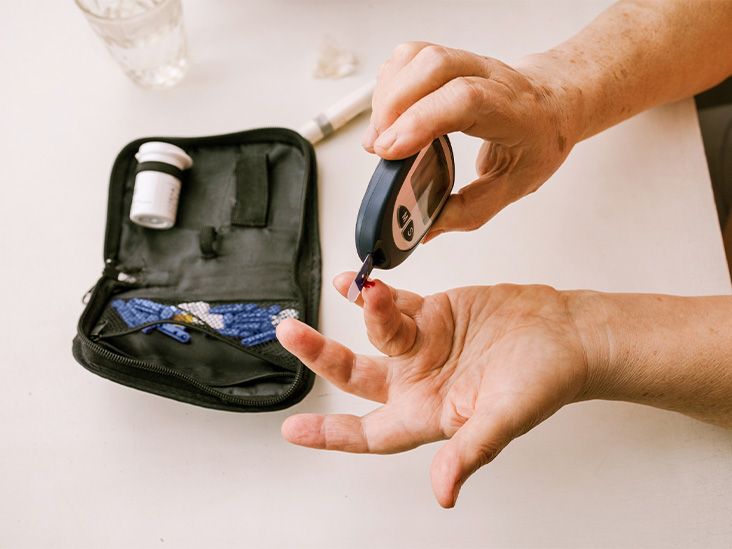There is evidence that post-traumatic stress disorder (PTSD) increases the risk of fractures. This may be due to the effects of chronic stress on bone density and structure.
PTSD is a mental health condition that occurs in some people after they experience a traumatic event. It can cause symptoms such as flashbacks, nightmares, and anxiety.
Without support, these symptoms may affect someone for a long time. However, high levels of stress hormones can also affect physical health over time, including bone health.
This article explores PTSD fractures, examining the underlying mechanisms and treatment approaches and when someone needs to seek help.

PTSD itself does not directly cause fractures. However, chronic stress can
Elevated levels of stress hormones, such as cortisol, are common in individuals with PTSD. These chemical messengers can interfere with bone metabolism and reduce bone density over time. If a person develops osteoporosis, this makes the bones more susceptible to fractures.
Some individuals with PTSD may also engage in behaviors that further affect bone health, such as not eating a nutritious diet, smoking, substance use, or excessive alcohol use.
A
Another
A more recent
PTSD can contribute to a range of physical health issues. Chronic stress from PTSD can
Research has also linked PTSD to an increased risk of cardiovascular diseases, including hypertension, heart disease, and stroke.
Being in a state of heightened arousal and stress can cause elevated blood pressure and increased heart rate, putting undue strain on the cardiovascular system. Over time, this can lead to developing or exacerbating heart-related conditions.
Additionally, individuals with PTSD are
PTSD treatment may help prevent or reverse some of the physical effects of this condition. However, there is no current research showing that treatment specifically lowers the risk of fractures.
That said, treating PTSD may reduce stress hormone levels over time, which could benefit physical health.
- Prolonged exposure (PE): This therapy gradually exposes individuals to memories, feelings, and situations relating to the trauma to help them confront and process them.
- Cognitive processing therapy (CPT): CPT helps individuals reframe negative thoughts and beliefs relating to their trauma.
- Eye movement desensitization and reprocessing (EMDR): EMDR helps reduce the intensity of traumatic memories, helping the brain to process them.
- Trauma-focused cognitive behavioral therapy (TF-CBT): TF-CBT helps individuals identify and change unhelpful thought patterns and behaviors.
There are no medications specifically for PTSD. However, some people find it beneficial to take certain antidepressants, such as selective serotonin reuptake inhibitors (SSRIs) and serotonin norepinephrine reuptake inhibitors (SNRIs). These can help reduce certain symptoms, such as anxiety or depression.
However, there is also some evidence that SSRIs
Learn more about medications for PTSD.
Anyone experiencing persistent mental health symptoms such as flashbacks, nightmares, anxiety, or a low mood needs to seek professional support, wherever possible.
Additionally, people who notice physical health changes, such as unexplained pain or frequent injuries, should also discuss this with a healthcare professional.
If someone experiences thoughts of self-harm or suicide, they need to seek immediate assistance.
Help is out there
If you or someone you know is in crisis and considering suicide or self-harm, please seek support:
- Call or text the 988 Lifeline at 988 or chat at 988lifeline.org. Caring counselors are available to listen and provide free and confidential support 24/7.
- Text HOME to the Crisis Text Line at 741741 to connect with a volunteer crisis counselor for free and confidential support 24/7.
- Not in the United States? Find a helpline in your country with Befrienders Worldwide.
- Call 911 or your local emergency services number if you feel safe to do so.
If you’re calling on behalf of someone else, stay with them until help arrives. You may remove weapons or substances that can cause harm if you can do so safely.
If you’re not in the same household, stay on the phone with them until help arrives.
In addition to professional treatments, there are also self-care strategies that can help people with PTSD reduce the effects of the condition on their mental and physical health.
Where possible, people can try:
- Eating a balanced diet: Getting enough protein, calcium, and vitamin D
is importantTrusted Source for bone health. Many nutrients also play a role in mental health and mood. - Exercising: While not a cure-all, exercise can benefit mental health. Weight-bearing exercise may also help strengthen the bones.
- Learning relaxation techniques: Practices such as yoga, meditation, and deep breathing exercises may help reduce stress levels. People can also learn short-term coping skills, such as grounding techniques, to help them cope with PTSD symptoms when they occur.
- Getting enough sleep: It is important to prioritize getting enough sleep consistently. Setting aside time before bed to relax or do something enjoyable may help, as can having a self-care plan in place for when a person has bad dreams.
- Reducing harmful behaviors: If relevant, people can try to reduce or replace unhelpful coping behaviors, such as drinking or smoking. While they may feel as though they are helping in the short term, they can worsen mental health and bone health over time. If it is difficult to stop these behaviors, a person can seek support from a qualified medical professional.
- Get regular check-ups: People may be able to attend screenings for conditions such as osteoporosis, depending on their age. Going to screenings helps doctors identify conditions early.
Research has found that people with post-traumatic stress disorder (PTSD) have an increased risk of fractures. This may be due to the effect of chronic stress on the bones. Certain behaviors, such as smoking or drinking, may also play a role.
PTSD is a complex condition with both mental and physical effects. Taking care of a person’s body and mind, wherever possible, may help mitigate these effects, but research is ongoing.
People with concerns they may have PTSD or that it is affecting their physical health should discuss this with a doctor or mental health professional with expertise in trauma.
Through a combination of effective treatments, lifestyle changes, and self-care strategies, people may help resolve PTSD.


